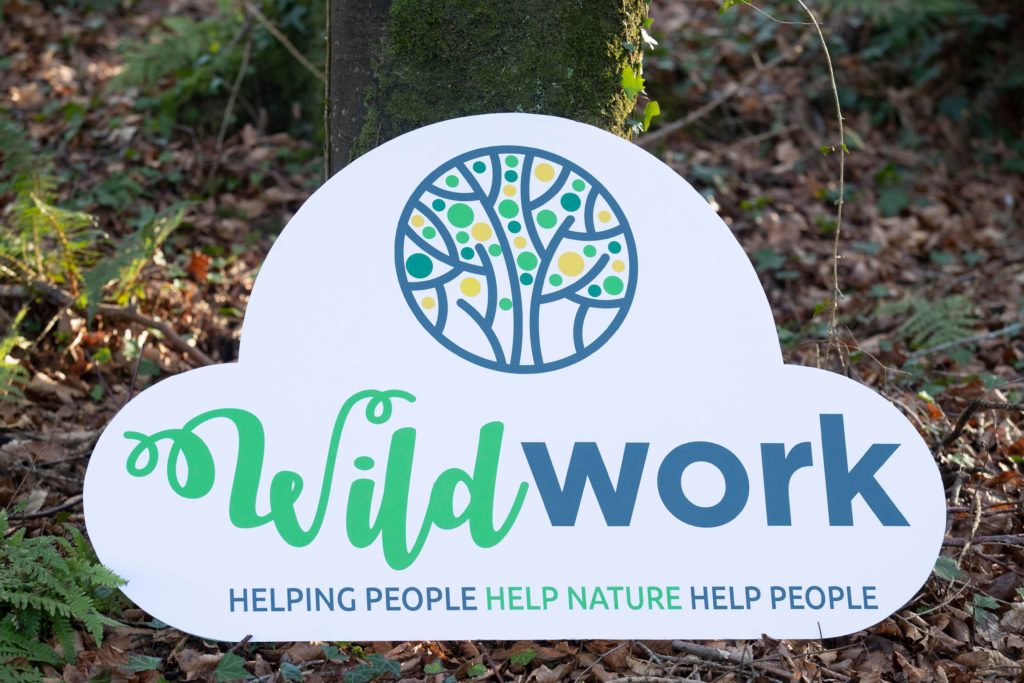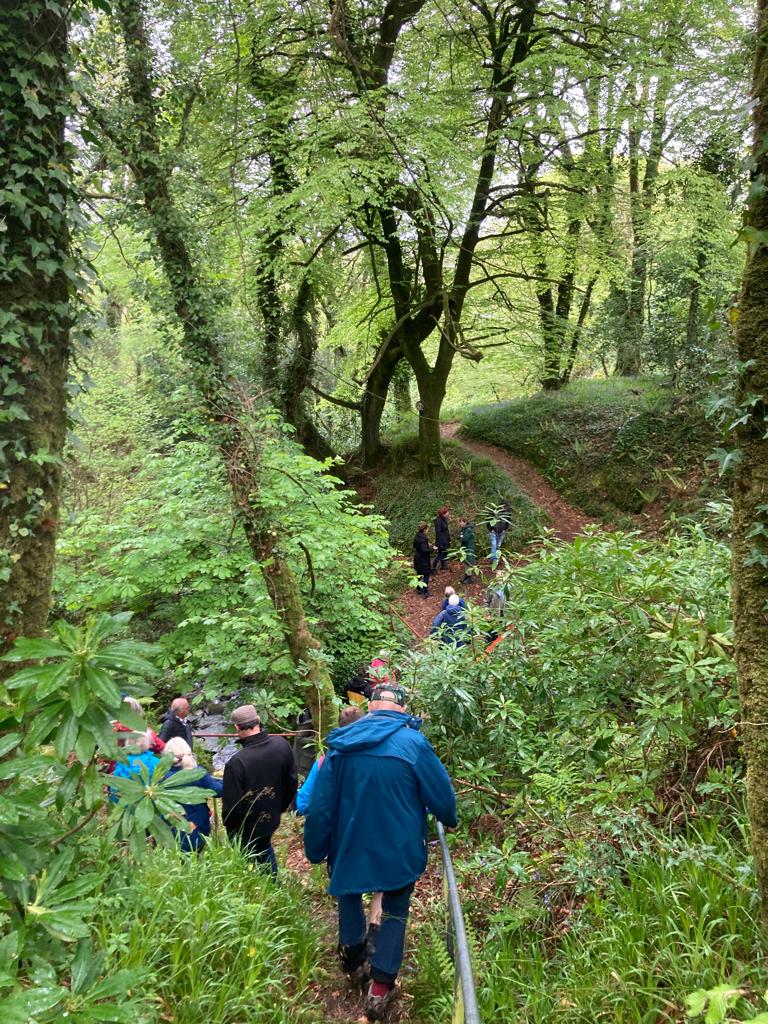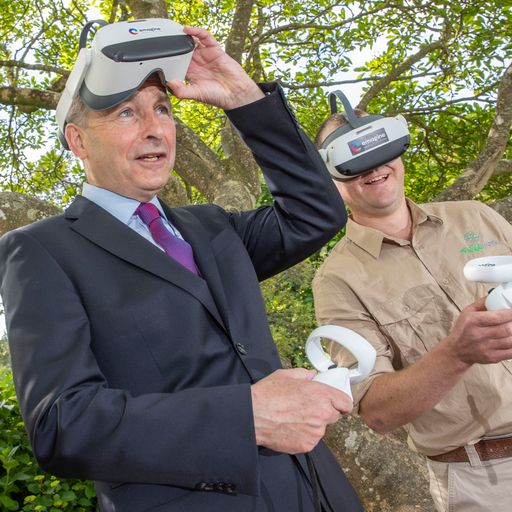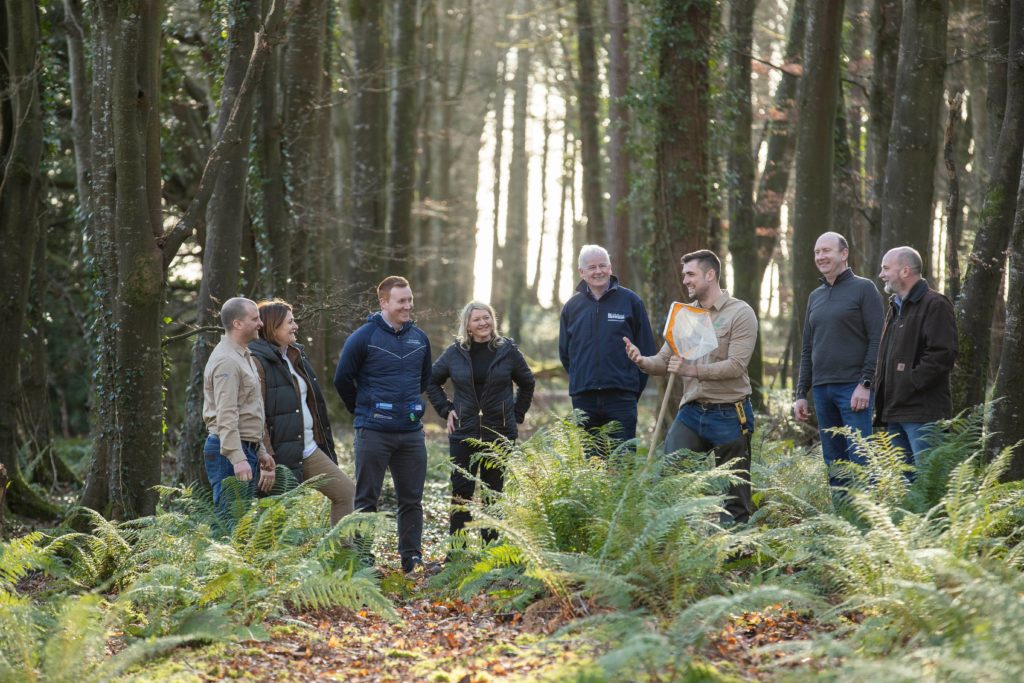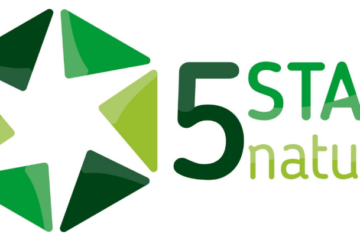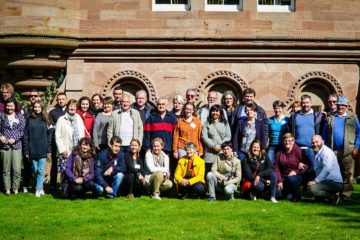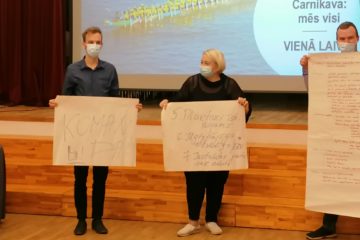Wild Work Co-operation Project
Project n°7
INTRODUCTION
Wild Work is a nature-based initiative with a social ethos that was developed by SECAD Partnership in 2017 to help people, help nature, help people. All around us, nature and biodiversity are facing serious challenges. The three partners, SECAD Partnership, West Limerick Resources and Cavan County Local Development secured LEADER Co-operation funding for what was the largest biodiversity project and second largest Co-operation project in Ireland for LEADER 2014-2022 (€680,000 Training €120,000 Analysis and Development, €200,000 Administration).
The Wild Work Co-operation Project involves four LAG areas in Cork (south coast of Ireland), Limerick (mid-west) and Cavan (north-east).
As part of a strategic plan, Local Development Companies have been using nature and the environment as a means of community engagement across a range of rural development and social inclusion programmes for many years. SECAD saw the opportunity for scalability and replicability of Wild Work in other regions in Ireland and Europe, but did not have the resources to do so. The inter-territorial partnership, benefitting from the combined experience of the project partners allowed us to collectively develop training resources, online toolkits, outdoor classrooms, virtual reality experiences and most importantly, to explore future opportunities.
PRESENTATION OF THE PROJECT
Wild Work training was delivered through a six-module biodiversity programme between 2021 and 2022 in 4 LAG areas and 20 locations with 600+ participants.
LEADER funds allowed the partners to introduce external expertise ie. a software development company, e-learning expert, immersive leaning / virtual reality and video expertise, biodiversity trainers for the creation of the online learning platform including the Wild Work Toolkit and Junior Wild Work Toolkit, a communications expert and an evaluator.
The online toolkits consist of over 200 pieces of e-learning material. Training participants contributed to toolkit creation by uploading video and photographic images captured during training in outdoor classrooms around Ireland. Thematic biodiversity training projects were delivered in each area ie. Citizen Science training in West Cork, Wellness training for businesses in South Cork, training in the development of Biodiversity Corridors in West Limerick and training in native Irish Seed Saving in Cavan.
In addition, 16 public lands training sessions were delivered across the four LAG areas to facilitate discussion, engagement and potential collaboration between community organisations and public authority/ landowners/state agencies regarding future land management.
A virtual reality experience was created using a series of hotspots containing images, video and audio content eg. meadows, rivers that were captured during the project. This technology allows those who cannot access nature to experience nature using VR headsets.
We identified an opportunity for better social inclusion and supporting mental health and well-being using this technology ie. for those who cannot access or experience nature due to age / disability / mobility issues. There is also an opportunity for inter-generational actions using VR. The project was specifically designed to address the shortcomings in knowledge and resourcing of biodiversity at local level, by encouraging awareness raising and up-skilling, culminating in informed, sustainable local biodiversity conservation and enhancement initiatives.
The project encouraged participants to improve their knowledge of biodiversity while engaging in practical biodiversity actions through experiential learning.
In October 2020, Wild Work was selected as a Best Practice example as part of the ‘Green Deal going Local’ initiative (a Call by the Committee of the Regions to highlight Best Practice examples from across Europe). The Committee of the Regions also selected Wild Work as one of the ‘Green Deal going Local’ projects to be showcased as part of World Biodiversity Day in May 2021.
Nearing completion of the project, a webinar involving the four LAG areas was organised. This allowed participants across Ireland to share learning, particularly around the thematic training. There were also facilitated planning sessions organised in each of the areas with the participants, through an ecologist employed by one of the partners. This resulted in the creation of ‘100 Actions for Nature’ highlighting actions for a range of stakeholders including communities, farmers, schools, public landowners. This has been incorporated into the Local Development Strategies for LEADER 2023-2027 in the project partner areas. In Autumn 2024 the LAG partners will launch a new Junior Wild Work which will animate our youth to become leaders of tomorrow. www.wildwork.ie https://wildworkpodcast.podbean.com/ https://youtube.com/@wildworkers?feature=shared
PRINCIPAL OBJECTIVES
SECAD Partnership developed the Wild Work concept in 2017. In 2019, SECAD approached other LAG’s in Ireland through our national network, the Irish Local Development Network (ILDN) to explore the idea of expanding Wild Work into other geographic areas. The inter-territorial partnership was designed specifically to achieve a scale of action, benefitting from the combined experience of the project partners. Since the interterritorial and transnational approach is designed to achieve scale beyond that which is possible at the level of individual LEADER LAG’s, the objective was to achieve synergies, leading to opportunities for the positive engagement of the community sector, business and public landowners. It was hoped that the project would give us the opportunity to explore long-term sustainability, scalability and replicability of the Wild Work model, in other regions in Ireland and Europe. Based on the collective experience of the project partners and a long track record in delivering on the LEADER principles, (re)introducing the principles of environmental management and biodiversity to those living in rural areas through training, was seen as a way of renewing their interest in natural heritage and environment. In turn it was anticipated that this would lead to a positive impact for people in terms of a sense of place, improved community cohesion, engagement in climate action at a local level and improved overall well-being when engaging with nature and biodiversity
Wild Work – helping people, help nature, help people.
Background: Wild Work was created in response to a number of very big but different challenges facing communities in Ireland:
- A decreasing level of interaction between young people and older people (intergeneration links) living in the same community, resulting in a loss of opportunity to transfer local knowledge, skills, stories, traditions and beliefs
- The challenge of a rapid increase in local populations caused by various factors including the movement of people into an area to find employment or as a result of national policies to move large numbers of refugees into rural settings, thus putting strains on local services, causing issues relating to a lack of integration supports
- Large numbers of young students, who are moving away from studying science and art-based subjects mid-way through their second level education cycle
- Mental health and wellbeing issues eg. especially amongst certain groups such as the youth sector, people living alone and people working in solitary occupations (such as farming)
- A growing biodiversity crisis, a key indicator of the impact of climate change By 2017 SECAD Partnership had been working through the LEADER Programme (and a number of other initiatives) to support and invest through actions that were attempting to address each of these five challenges. As part of a formal review at that time, it was recognised that there was one common connector, a way of doing our work, that would connect each of these issues in a manner that could potentially bring about some positive impacts and perhaps even address some of these challenges in a fundamental and sustainable manner.
This new approach (movement) called Wild Work was thus created, aiming to develop an approach of working with nature-based projects that would encourage people to work together, linking older people and youth, linking community to community, natives with new neighbours. In all cases the focus was on a collective approach to addressing a common concern, a common interest, protecting our natural environment. A number of actions would emerge, some generic across the community sector and others that would focus on specific grouping such as landowners, schools, public bodies etc.
THE ADDED VALUE OF THE PROJECT
A commonality of vision formed the foundation of the inter-territorial partnership and informed the subsequent actions included in this innovative co-operation project. The partners bring specific and complementary dimensions and skills. New and novel approaches, like those designed and delivered through Wild Work require scale in order to be developed and the inter-territorial approach offered that opportunity. While the participating areas are not homogenous and have some location specific assets and opportunities, the imminent threat of climate change and biodiversity loss presents significant concern for all areas involved. An inter-territorial (and future transnational) approach to a project of this nature has the potential to provide increased opportunity over local approaches. The model was developed with the objective of replicability.
Organisations engaged in CLLD are ideally positioned to engage with all relevant stakeholders to deliver Wild Work in both rural and urban areas. The Wild Work Toolkit and Junior Wild Work Toolkit are key outputs from the project. They are hosted on a Moodle learning platform with the capacity for scalability in terms of numbers of concurrent users.
There is an on-going technical and financial resource requirement for the hosting and maintenance of the website and e-learning platform as well as the roll out of training using the Toolkits. The Junior Wild Work Toolkit is aimed at young people age 10-12. For the academic year from September 2024 ‘Junior Wild Work facilitators’ will deliver an education programme in primary schools in Cork using the Junior Wild Work Toolkit, contributing to the STEM curriculum. A combination of classroom and outdoor classrooms will be used. The programme is designed to upskill teachers and biodiversity ambassadors in order for them to be able to deliver the programme themselves in the future. The Toolkits are also being used for community engagement and the integration of new communities.
There are plans to translate toolkits into other languages and some modules are already available in Ukranian. The project contributed to skills development using a range of technologies and outdoor classrooms in each partner area and between areas, across a range of stakeholders including LEADER LAG’s, community representatives and organisations, farmers, schools, teachers, young people, public bodies and other landowners. There is huge potential to use the concept and outputs of this project on a much wider scale for STEM education, biodiversity awareness raising, community development, integration of new communities, intergenerational learning, well-being, accessibility and social inclusion. The project partners will use the resources we developed in various ways. As multi funded organisations engaged in CLLD, we will incorporate the use of the project outputs into other public programmes where possible. Another output, 100 Actions for Nature has been included in the four Local Development Strategies for LEADER 2023-2027. We saw a clear benefit and purpose to our co-operation and collectively we overcame any implementation challenges. We planned carefully, chose the right topic and the right partners. The Wild Work Co-operation project is complete, but the work continues and we are planning for the future!
